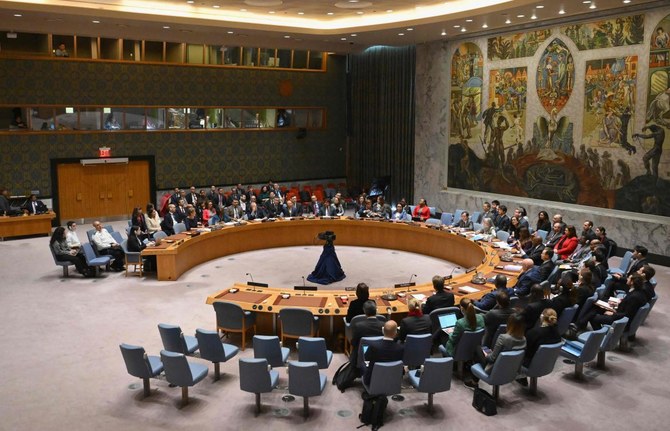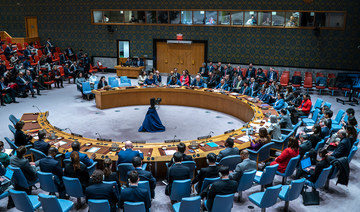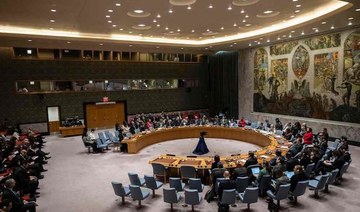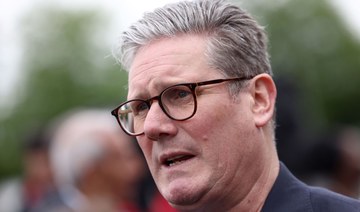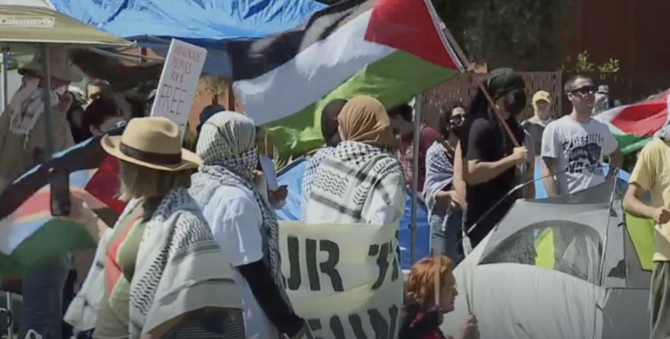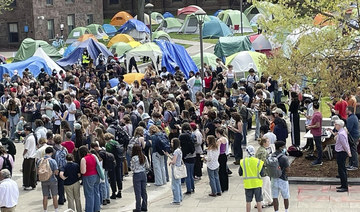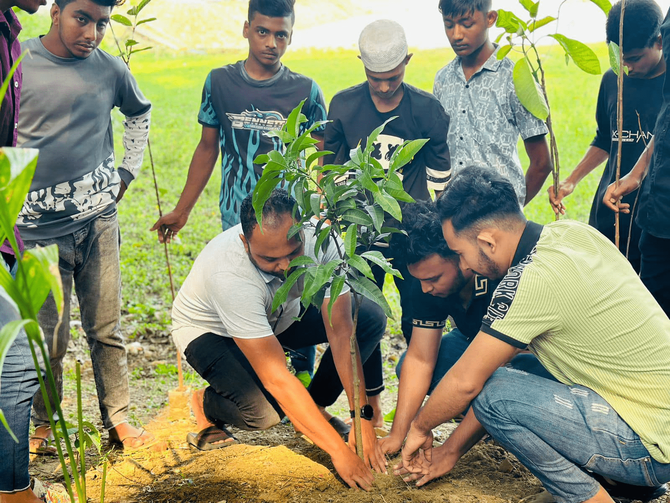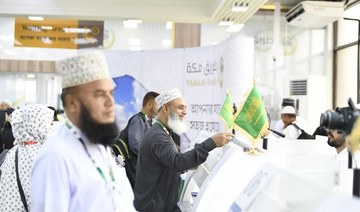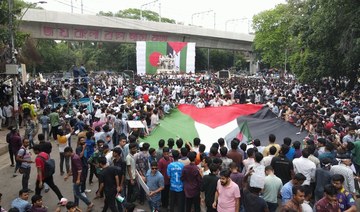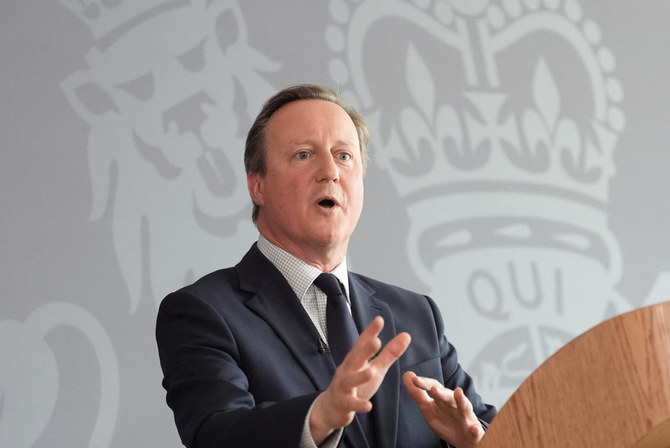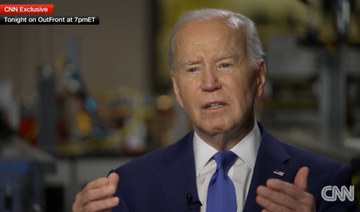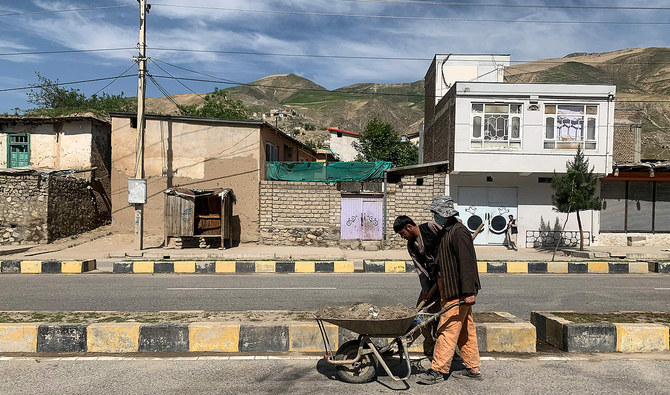NEW YORK CITY: For the first time in 170 days of the war in Gaza between Israel and Hamas, the UN Security Council on Monday demanded an immediate ceasefire, lasting for the duration of Ramadan.
The US, which had vetoed previous similar resolutions, abstained. By doing this instead of using its power of veto, it allowed the resolution to pass. With all other members of the council voting in favor, the 14-0 result drew a rare round of applause in the council chamber.
The resolution, the text for which was seen by Arab News, calls for a cessation of hostilities during the holy month, leading “to a lasting, sustainable ceasefire.” In addition, it calls for Hamas and other militant groups to release all hostages taken on Oct. 7.
It also demands that all involved in the conflict “comply with their obligations under international law in relation to all persons they detain.” It emphasizes “the urgent need to expand the flow of humanitarian assistance to, and reinforce the protection of civilians in, the entire Gaza Strip” and reiterates its demand for the lifting of “all barriers to the provision of humanitarian assistance at scale.”
Opinion
This section contains relevant reference points, placed in (Opinion field)
Russia at the last minute objected to the removal of the word “permanent” in relation to the ceasefire call and its replacement by the word “lasting.”
Russian envoy Vasily Nebenzia described this as “weaker wording which could allow Israel to resume its military operation in the Gaza Strip at any moment, following the expiry of the ceasefire.” He called a vote on an amendment calling for the word “permanent” to be restored but it failed to pass.
Algeria, the Arab bloc’s current member on the council, drafted the successful resolution in cooperation with others among the 10 elected members, including Slovenia, Switzerland, Mozambique, Guyana, Ecuador, Japan and the Republic of Korea.
The draft acknowledged the ongoing diplomatic efforts by Egypt, Qatar and the US to bring about an end to the war, the release of all hostages and an increase in the amount of humanitarian assistance delivered to Gaza.
The US ambassador to the UN, Linda Thomas-Greenfield, said Washington fully supports “some of the critical objectives in this nonbinding resolution” but did not agree with all of the text, including its failure to condemn Hamas.
In response to her use of the word “nonbinding,” UN spokesman Farhan Haq said: “All Security Council resolutions are international law.”
The UK permanent representative to the UN, Barbara Woodward, said all council resolutions are expected to be implemented and called for it to happen “immediately.”
Riyad Mansour, Palestine’s permanent observer to the UN, said, “Give us a break,” when asked whether or not the resolution was considered binding. If Israeli authorities fail to implement it, he added, the Security Council “has a duty to invoke Chapter 7” and compel them to do so.
A ceasefire could have been achieved months ago, Thomas-Greenfield said, if Hamas had been willing to release the hostages it holds.
“Instead, Hamas continues to stand in the way of peace, to throw up roadblocks, cower in tunnels beneath Gaza cities and under civilian infrastructure and hide among the civilian population,” she added.
“This resolution rightly acknowledges that during the month of Ramadan, we must recommit to peace. Hamas can do that by accepting the deal on the table. A ceasefire can begin immediately with the release of the first hostage. And so we must put pressure on Hamas to do just that.”
In a message posted on social media platform X, UN Secretary-General Antonio Guterres called for the implementation of the resolution. “Failure would be unforgivable,” he added.
Amar Bendjama, Algeria’s permanent representative to the UN, congratulated the council for finally “shouldering its responsibility as the primary organ responsible for maintaining international peace and security.”
He added: “The Palestinian people have suffered greatly. This bloodbath has continued for far too long. It is our obligation to put an end to this bloodbath before it is too late.”
Slovenia’s envoy, Samuel Zbogar, expressed hope that Monday’s vote “will signal an important day for the people of the Middle East, a day that will help silence the guns, stop the killing, free the hostages, as well as bring some calm to, and clear the sky over, Gaza. The day that marks the beginning of the end of pain and suffering of civilians.”
France’s permanent representative to the UN, Nicolas de Riviere, said it was “high time” the council called for a ceasefire, the release of hostages and increased flow of aid “at a time when famine is rife in Gaza,” because “the council’s silence on Gaza was becoming deafening.”
But he added that “this crisis is not over” and the council will have to remain “mobilized” and “immediately get back to work” to establish a permanent ceasefire, assist the recovery and stabilization of Gaza, “and above all the Security Council will have to get a political process back on track.”
An emotional Mansour struggled to hold back tears as he said it had taken “six months, over 100,000 Palestinians killed and maimed, 2 million displaced, and famine for this council to finally demand an immediate ceasefire.”
Palestinians have been killed “in their homes, in the streets, in hospitals and ambulances, in shelters, and even in tents,” he added. “This must come to an end now. There can be no justification for war crimes, crimes against humanity and genocide.”
Acceptance of any justification for such crimes would be a renunciation of humanity and destroy the rule of international law beyond repair, Mansour said.
“Israel has been treated as a state above the law for so long that it feels it no longer has to hide when acting as an outlaw state,” he added. “From ethnic cleansing to genocide, our agony is caused by Israel’s actions but also by the impunity it has been afforded.”
Israel’s permanent representative to the UN, Gilad Erdan, criticized the council for being quick to condemn the recent attack in Moscow and the ones in Iran in December and yet “still, until today, can’t get itself to condemn Hamas.”
He accused his Palestinian counterpart of “lying through his teeth when he says that his people want to live side by side with Israelis.”




